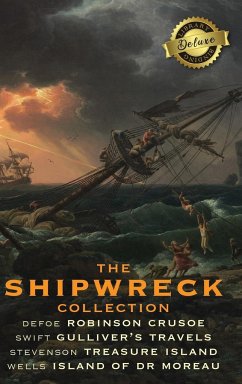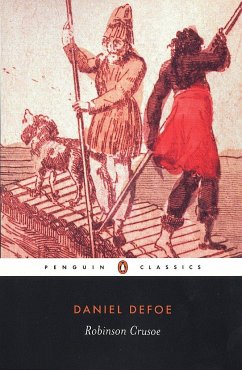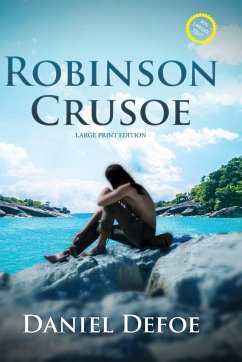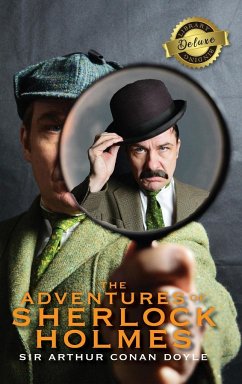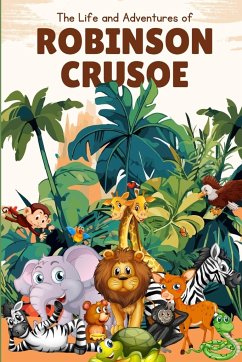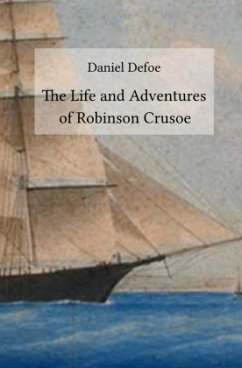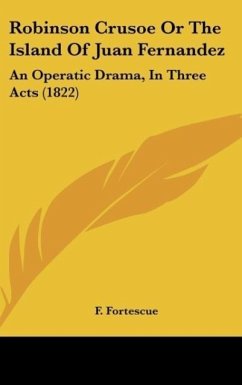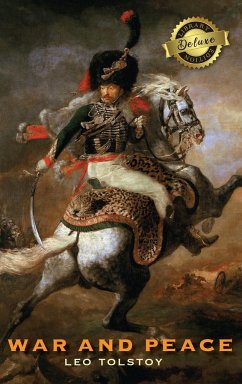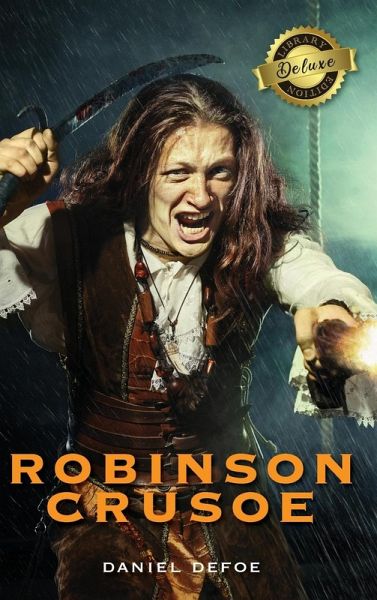
Robinson Crusoe (Deluxe Library Edition) (Illustrated)
Versandkostenfrei!
Versandfertig in 1-2 Wochen
30,99 €
inkl. MwSt.

PAYBACK Punkte
15 °P sammeln!
On Robinson Crusoe's first seafaring voyage, his ship sinks in a violent storm. On his second voyage he is enslaved by pirates. When Crusoe braves the ocean after several years in Brazil, Providence leaves him as the sole survivor of a shipwreck on a deserted island. Confronted by hunger and the elements, Crusoe builds a home, grows crops, tames wild animals, and survives cannibals and mutineers by his wits and the qualities of his cultural upbringing. But while Crusoe has conquered his island, he is affected most by his isolation from civilization. Robinson Crusoe is widely regarded as the fi...
On Robinson Crusoe's first seafaring voyage, his ship sinks in a violent storm. On his second voyage he is enslaved by pirates. When Crusoe braves the ocean after several years in Brazil, Providence leaves him as the sole survivor of a shipwreck on a deserted island. Confronted by hunger and the elements, Crusoe builds a home, grows crops, tames wild animals, and survives cannibals and mutineers by his wits and the qualities of his cultural upbringing. But while Crusoe has conquered his island, he is affected most by his isolation from civilization. Robinson Crusoe is widely regarded as the first English novel. No book in the history of Western literature had spawned more editions, spin-offs, and translations. Adaptations include The Swiss Family Robinson, the Hollywood film Cast Away, and nbc's tv series Crusoe. The story was likely influenced by the real-life Alexander Selkirk, a Scottish castaway in 1704 who spent four years and four months on the Pacific island Juan Fernández which was later changed to Robinson Crusoe Island in 1966.




